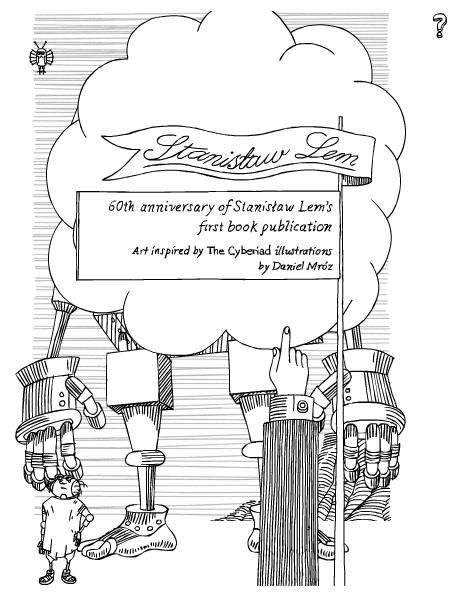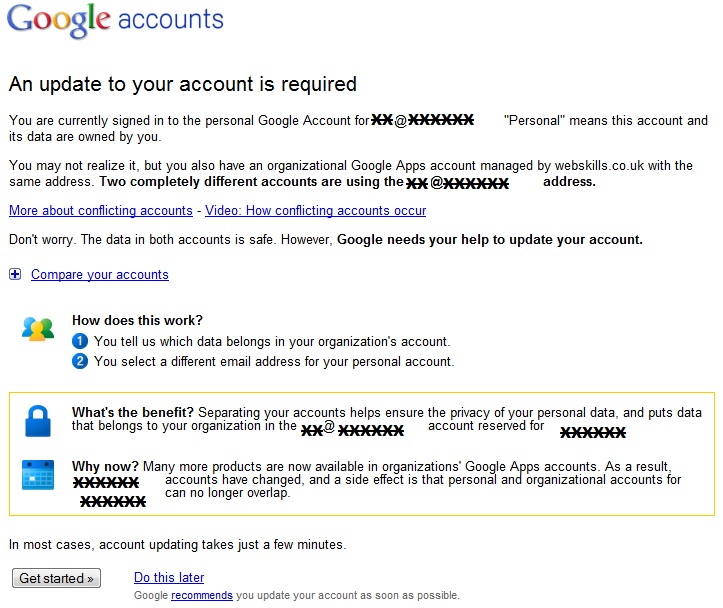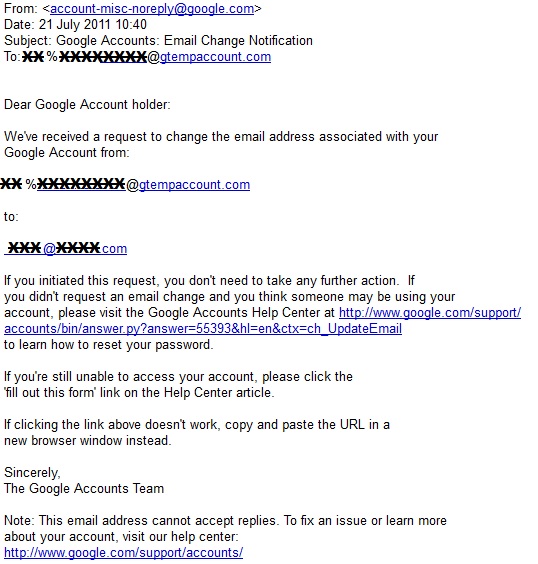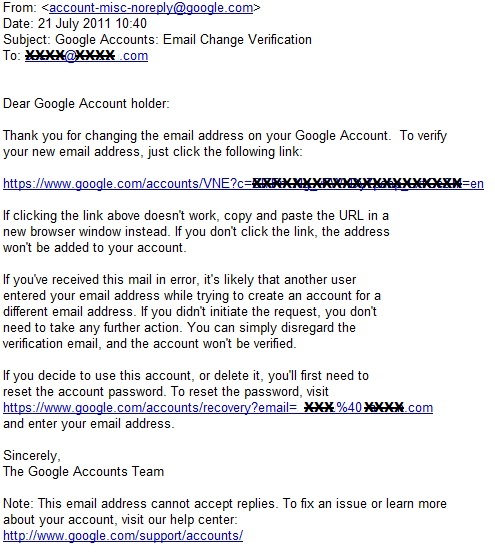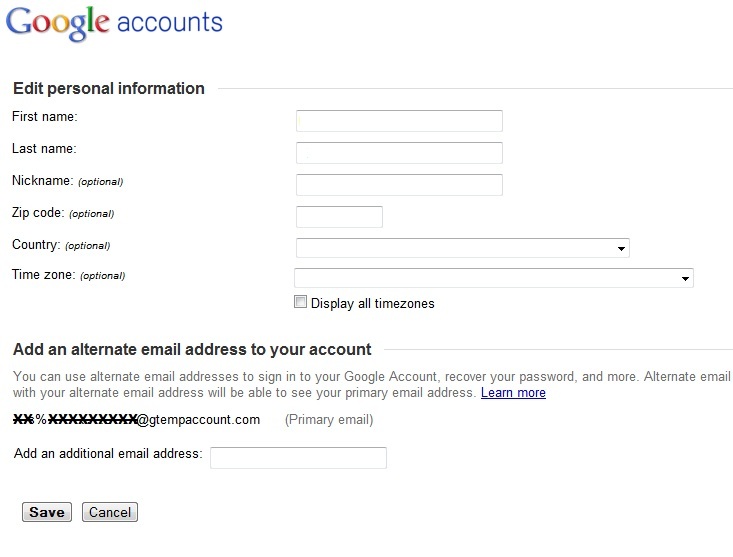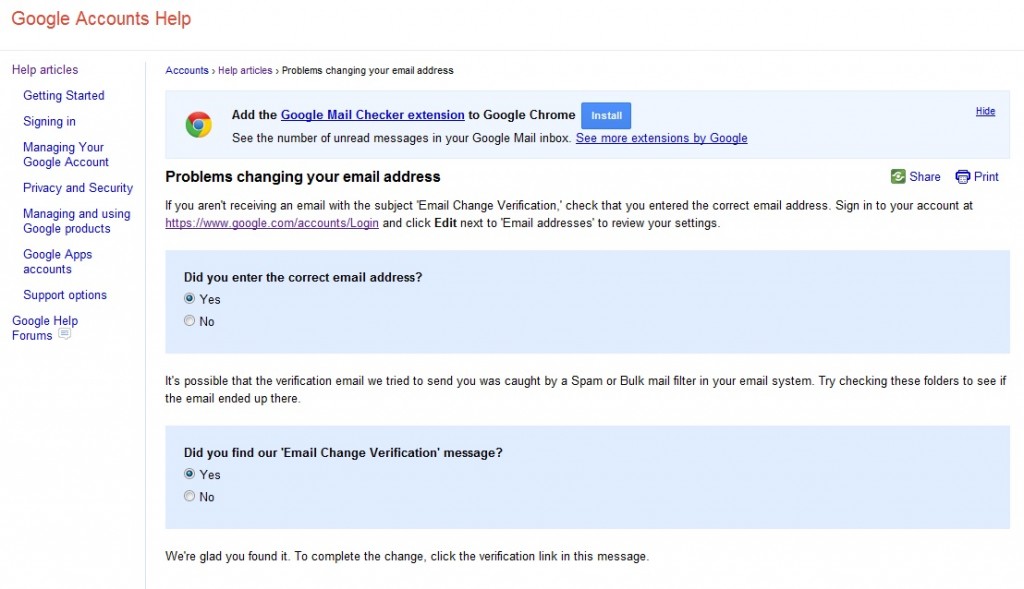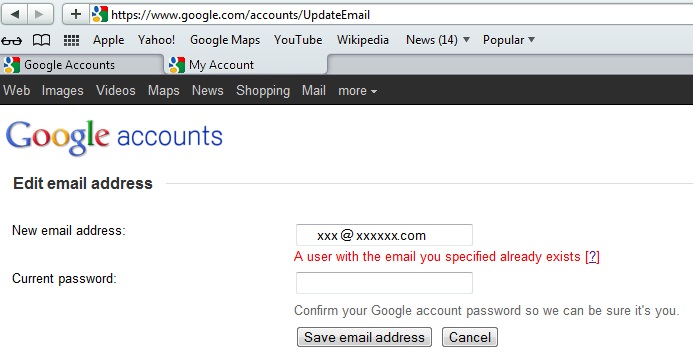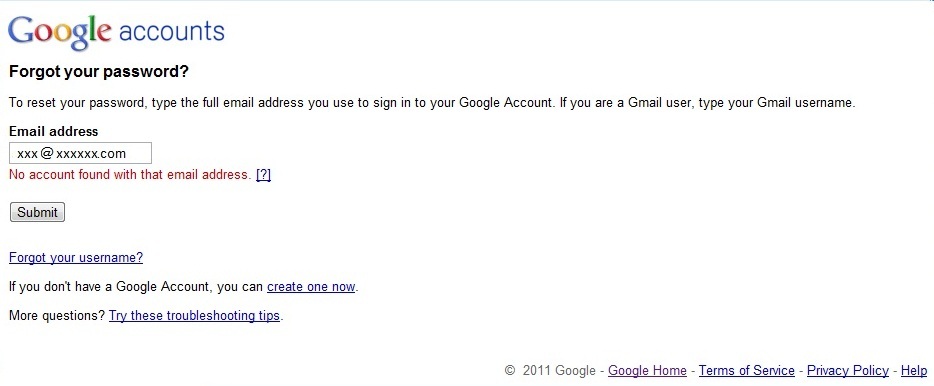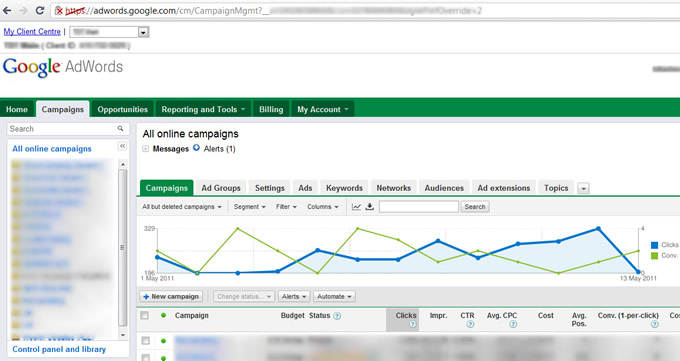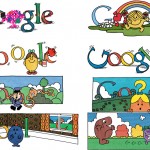Today one of the most impressive doodles up to date.
Google celebrates one of the most influential science-fiction authors in history.
Late Stanisław Lem published his first book 60 years ago his works sold in over 27 millions copies and has been translated to 41 languages.
All time Krakowiak!
Category Archives: Our News
Listings with links – Further Expansion – Google’s yet another update…
As we reported recently Google introduced bullet lists in Search Engines Result Pages - few weeks in to the future and Google is again showing new features. This time well on the way to make SERPs even more accurately targeting people to relevant landing pages:
Bullet Points, Calendars of Events… – All to speed up search process.
Google’s idea to change SERPs into a one stop shop and create habit of using more then ten text blue links gets another dimension. This time more accurate landing pages from one listing
In the case of the picture attached – FOUR in ONE
Yes, I must admit when Google in order to create more control over our behavior changed Google Accounts system I thought they were a proper bunch of lunatics as this change just upset a lot of people and made huge steps towards Googlnet which put tools in hands of Google opposition frightened by power of manipulation and behavior tracking.
However these latest SERPs changes prove there is still a strong search division in the biggest Search Engine in the world not only bunch of marketers analysing vast amounts of user behavioural patterns and forcing their implementations to modify pure algorithmic SERPs.
Yes this is true, In this huge corporation there are very few guys left who are focused on search algorithms, search quality etc. These days most of the people involved are – Customer Support people, money collectors and sales in call centers and in other offices - no different to a high street bank
Bullet Lists for Listings in Google SERPs
Recently I’ve seen some info from Google mentioning they did about 500 algorithm adjustments during last year to improve quality of searches.
I would say we’ve seen a lot of effort during last months whether we can call it always “improvements” or “nightmares” is up for users to judge and decide in the long term. However I must admit I was surprised they mention only 500 adjustments we could easily see about 100 visual changes in Google interface and usability and each of these brought new functionality which had impact on how search algorithm works.
Let’s concentrate on one of the recent ones – Bullet Lists.
New Search Engines Result Pages addition of bullet list on Google is extracted from website landing page. The most relevant for particular query page content is no longer string of text in some cases. Google decided now the most relevant is matching offer and inserted just under URL list of items available on this page. On the front of this list we have greyed out prefix in the form of information how many items relevant for our keyword we can expect on particular webpage.

New SERPs feature easy to spot - duplicate content from Premier Inn? Not really - Look at their prices £30 off now visible on Google SERP - Well done Google :-)
So there are some direct positives for user from this feature already. Of course if you plan to stay in London City Hotel your click is more then likely to go to listing one however this dosen’t put Premier Inn in Good light – does it? After all URL with £30 more expensive offer says “Budget” and there you go guys in Premier Inn marketing vocabulary there is £30 gap between “Cheap” and “Budget”.
Google “Bullet List Feature” on SERPs Summary:
- This is an important update for all ecommerce websites putting travel industry, gift shops, any kind of directories, affiliates and vertical search engines in the spot.
- Check your setup we’ve seen within lists <li>,<div>,<tables> – Google has them all is only one way to check which is better…
- Onsite Optimisation of Landing pages more relevant then ever before – Google SERPs one stop shop is closer then ever before – imagine links activated on these babies.
- SEO architecture – big changes ahead for your category pages – homepage won’t do the job the way.
Google Accounts Email Updates – Have you noticed any issues
The guys at Google have decided there are too many of logins and systems in Google and have merged everything in to one. Of course this created a bit of chaos, but it sounds like a good idea if works.
After few sessions we decided how our internal Google account system should work and we started changing emails unfortunately this come very quickly to stop when we found Google’s changing mechanism simply doesn’t work for us. I submitted this page to a Google forum in order to explain what is wrong.
Some data in pictures below has been erased or censored as they contain sensitive information.
We believe Google apps creates problem with how it treats aliases, groups etc. When we were first requested to update our accounts we first used an account which hasn’t been used and wouldn’t matter if the data was lost.
1) We started following Google’s instructions:
2) We were pleased to receive a confirmation email about the change of email address
3) We then received Google email change verification message (This was also good)
then there was a trouble…
4) Google’s instructions say:
1. Check your email account associated with new address – we did this
2. Open the message from Google that contains subject line “Google Accounts: Email Change Verification.” – we did this
3. Visit the verification link provided - we have done it this part too
5) We did it all as mentioned but our email didn’t change
6) We visited the only available troubleshooting it explored subject to it deepest parts ;-). Of course we followed these instructions about 10 times just to make sure we did everything properly
7) At some point we discovered Google thinks our email account has been used for Google Account
Of course we did all possible research to try and out find who used this email account to setup Google Account and we found there is no such a person :-). In this case we did attempt another visit to Google Account tools to find out more about this mystery account login and…
8) Google let us know there is no such account in their database so??? Is there or it isn’t?
Circle started and continues – we can not change email because Google says Google Accounts for this email exists this is not true as it was never setup but we host our email with Google Apps (we only made assumption this could be a problem which Google overlooked). On the other hand Google says no account for this email exists – a bit of contradiction :-(.
We reckon after recent change Google has some problems with Accounts unless we simply missing something. Either way there is no serious support for this change online or at least standard troubleshooting is not sending people there. From annoying change our problem started to be an issue at this moment.
We simply looking in to solution from Google for our problem and we will appreciate all comments from people who had had similar problem we just wonder if we are the only ones. If you know any solutions to this will be great to hear from you.
I’ll just add now before anyone suggests it using gmail for logins is not an option for us as it will create management chaos no different from the current one. We had one of our accounts already forced to do it and we would be glad to find out how we can get back to our corporate email on this account but that’s a different story.
Gregor Mendel’s 189th birthday Google Doodle

Today Google is celebrating the 189th birthday of Gregor Mendel, an Austrian friar and scientist who is known as the “father of modern genetics”.
You may be wondering what this has to do with peas…
Mendel studied genitic variation in pea plants. Between 1856 and 1863 he cultivated nearly 30, 000 pea plants.
His study showed that one in four plants showed recessive genes, two showed hybrids of recessive and dominant genes and the other showed only the dominant gene.
These findings led him to make two generalisations which are known as Medel’s Laws of Inheritance.
Facebook, Twitter and +1 Tracking on Webmaster Tools & Google Analytics
Google announced on their Webmaster Tools Blog that they are now tracking social media interactions with your site.
![]() In Webmaster Tools you may have noticed a new menu section appear in the side bar.
In Webmaster Tools you may have noticed a new menu section appear in the side bar.
Search Impact Report shows you how the click through rate of your organic traffic has been affected by +1′s (Click the image for Search Impact Report Screenshot).
Activity Report shows you how many times your pages have been +1′d both on your site and in the SERP.
Audience Report show how many individual users have +1′d your site, as wells as some demographic and geographic information (this information only shows up after a significant number of users have +1′d your site).
Check out our post on adding the Plus1 button to your site if you don’t already have it.
![]() If you use the new version of Google Analytics you will have seen a new Social menu item is now available with three reports:
If you use the new version of Google Analytics you will have seen a new Social menu item is now available with three reports:
Social Engagement Report shows you metrics of visits when users had some sort of interaction with your site. (Click the images for a screenshot of the Social Engagement Report).
Social Actions Report displays the number of each of the social interactions you are tracking on your site.
Social Pages lets you compare social interactions that occur on pages on your site to see which pages have the most interactions.
This tracking allows you to track social interactions from Facebook, Twitter, +1, Del.icio.us, LinkedIn and probably many more.
Dot anything the way we use internet will change…. in 8 years time
OK, the long awaited .anything domains received the green light from ICANN (Internet Corporation for Assigned Names and Numbers) during their meeting on 20th June 2011. Yes we knew it will be pricey we new it will be available only for corporates and we knew main force behind it is anti-cybersquatting corporate team with HP and Morgan Stanley behind it.
So what about dates and prices? The initial go ahead is for applications from Trademark and Corporate Brands and it will take place between Jan 2012 and Apr 2012. Application cost is $185,000 USD (peanuts) and the first “one word/letter” domain is scheduled to go live by the end of 2012. Yes this is another spin off .anything. The “.” will go (wow!) – sooner or later this same way people no longer use “http” and “www”. This is actually more significant from “.anything” itself because it will have direct impact on our way of searching for data on the web. Marketing will change too.
Google and other search engines may need to decide which domain is more important old stuff like “ibiza.com” which belongs to cybersquatters like fma or simply “ibiza”. This way or another there is a chance if we are lucky we will have domains which simply will be our names with IPv6 assigned to us when we ware born – kind of global passport (What about this idea ![]()
Dot anything looks incredibly chaotic at this moment but we are sure we will learn how to use it soon. After few years of strict overlooking from ICANN some rules will be relaxed and some more strict than today when registering a web address.
Try to imagine now you type in word car in to browser and you are served with result page of your preferred search engine (browsers introduced “one box” recently). In the future word “car” can be actually website would this mean back to separate search box in 2013?
Find out more on ICAAN website about who is involved and how .anything will work: ICANN.ORG
New .COM bubble burst? – 10 reasons why is not going to happen – again :-)
I believe in the power of internet marketing, web technology and efficiency. After a total disaster on the financial market and questionable investments in hyper-inflated priced properties, there is no other way forward than the technology sector with web services being in the lead of this trend. This sector is the need for very sensible and careful investors as technology changes all the time and without proper structure based backing we know what can happen…- and we do not like “bursting bubbles”. Opposite to speculations on financial markets which require almost no knowledge just good bluffing skills, and a quick reaction to exchange rates, political decisions and other news, the technology sector requires a firm knowledge base and “a magical ” business-tech-inventor nose to recognise and sniff out the good from the bad. This sector creates a division between the old and the new type of investors. In this light, it came to my surprise to see The Independent (my favourite UK newspaper) cover story from 21st May which looked like an invitation for speculators rather than knowledgeable investors to enter the web investment market.
Floating shares of social media giants give us a good reminder of what has happened in the past. Just after the first public shares of LinkedIn become available on NYSE making company worth U$10bn, The Independent asks questions regarding the true investment picture of this hi-tech social phenomenon. The picture The Independent painted for investors doesn’t look convincing. The newspaper brought to our attention Warren Buffett’s words which give potential investors an extra warning, but this all looks a little bit artificial as we are well into the third decade of www development. We know how much attention The Independent pays to its dramatic cover stories (don’t get me wrong – still my the most favourite paper in the UK), but this is an especially poor attempt as Warren Buffet doesn’t have a mobile phone and is not even using PC at work. By looking for the much younger successor from 2007, he admits he no longer understands investments in new technologies. His GE stock is perhaps the closest thing to Hi-Tech he owns and although his 2001 comments on dot-com bubble were valid most of the market analytics at the time spot what is happening well before he did. March 2011 comments about high values of social networks sites looked like his PR release rather than 100% analytic based opinion. He never personally attempted to invest in www start-up, and he is an “oracle” as far as he buys well established corporate shares where knowledge about speculations and over-investment are two major factors to manage success. In essence, Warren Buffet is the worst example of an investor to quote when talking about dot-com bubbles and bursts. He is the exact opposite of what makes up a www investor.
After reading The Independent feature you would think the old world of “Brick and Mortar” and “Oil and Steel” investors is simply unable to digest the idea of products and services which are sold in quantities, millions per day and generate up to the sky profits without changing the Earth’s surface – too good to be true? No – it just requires modern thinking which is perhaps not in the heads of The Independent writers ;-).
The only worrying sign about social networks comes from the advertising profit vs value factor, which shows direct concerns for individual users rather than investors. The question is this: if they (Social Networks) don’t make money only from direct advertising, what happens behind the closed doors with our data? Anyway, the real value of these networks is a composition of two factors:
- How many users they have?
- How fast they respond to the current need of their community to engage people more and to avoid MySpace effect?
We are still to find out more about their commercial potentials.
As many people say, Google’s real value is not yet discovered even by Google themselves. The gigantic set of data about our behaviour, gathered over the years, which Google is capable to store, but only use in a limited and a rather primitive way, creates perhaps the most precious part of this vast search engine.
Back to the point of investment in social media and www technology we created a list of 10 reasons why the dot-com bubble won’t burst again:
1) DSL services penetration - in 2000 speed and penetration of domestic broadband services was poor 150kbs was considered the internet speed of light only large organisations had access to T1 or equivalent connections. Half of the world didn’t know what the internet was and apart from the USA, EU, Japan, Korea, and few far east “tigers” use of the internet for domestic purposes was unknown. Today high-speed domestic internet connections are available on all continents including Antarctica and for some, Wikipedia becomes the main source of information, and replaced paper version of encyclopaedia in our houses. Speeds increase, networks expand to new territories and users.
You would be silly not to invest in growing market.
2) Control over data - the beginning of the century had seen Amazon struggling with a lawsuit when they used to serve different prices to different users. Amazon knew they should monetize from the knowledge they had about their customers’ behaviour somehow, but they had no clue how to do it. Nowadays, the sophistication of online direct marketing tools is higher. Online retailers, advertisers and publishers quickly learnt how to cooperate rather than compete with classic media channels to control their marketing effort and gather relevant information about the marketplace.
You would be silly not to invest in technology which gives you detailed information about your potential marketplace.
3) Mobile devices - once again, Apple showed the world the way forward. With three major players on the market, it became clear the war has just begun. The latest Motorola model shows a powerful phone which contains the ability to run your office on the big screen. With growing worldwide market penetration exceeding standard PC platforms, there is only one way for all of us – go mobile.
You would be silly not to invest in the most energetic and vibrant market in the world.
4) Efficiency - from a fascinating tool for academics and huge corporations and awkward gadget used in domestic environment exploited very well by porn and gaming industries in the early days of 21st century WWW become a stable and efficient day to day resource of information. Servers down seem to only appear on few websites (twitter in particular ![]() ), and if this happens very often, it makes news in the offline media. Security standards improved. User numbers go up even though a lot of data about us has been stolen through the online environment (with the recent Sony PlayStation Network as a flagship example). These facts do not repel us from using the internet for the most vital operations in our lives (online banking, booking doctors appointments). Maybe, because of the other data leaks, we are no longer bothered? During the last few years, government agencies showed us that you do not need the internet to loose a 20 million records database with vital personal details. CD or USB stick is as much at risk in the hands of an incompetent public servant as the internet DB). Either way corporate and government institutions, as well as consumers, did their homework and it looks like a 5-minute visit to our online bank account is worth some risk (I wonder how many people remember how was it to queue in the bank for 45 minutes).
), and if this happens very often, it makes news in the offline media. Security standards improved. User numbers go up even though a lot of data about us has been stolen through the online environment (with the recent Sony PlayStation Network as a flagship example). These facts do not repel us from using the internet for the most vital operations in our lives (online banking, booking doctors appointments). Maybe, because of the other data leaks, we are no longer bothered? During the last few years, government agencies showed us that you do not need the internet to loose a 20 million records database with vital personal details. CD or USB stick is as much at risk in the hands of an incompetent public servant as the internet DB). Either way corporate and government institutions, as well as consumers, did their homework and it looks like a 5-minute visit to our online bank account is worth some risk (I wonder how many people remember how was it to queue in the bank for 45 minutes).
You would be silly to ignore the level of efficiency which is coming from these technologies.
5) Life dependency - mobile phones are now in their fourth decade of development. Recent polls have shown, a mobile phone is the most likely to be picked up from all our belongings, including clothes (people have worn clothes for thousands of years) if we are forced to leave home, and allowed to take just one item. Strange? – I don’t think so, but 20 years ago we would choose cash, pants or a long coat. The mobile phone is now recognised as the most sophisticated tool for survival. With smartphones on the offensive, it won’t be long we will use them for virtually everything. With cloud storage services, these will create a powerful combination. I assume there always will be people like Warren Buffet, who don’t use mobiles (he drags his PA behind him who makes all the calls :-)), but for most of us, mobile instead of a PA is the way forward.
You would be silly not to invest in services and products which are considered the most important “thing” currently in our lives.
6) World goes green – whether we like it or not. With all the energy consumption and heat created by servers during hours of continue processing www is a “green” technology in its roots. There is also genuine anti-corporate aspect and element of social media being powerful enough to help to shape political decisions (see Iran, Syria or Egypt uprising examples).
Investors would be silly not to make money on something people like, have monetization process established and can be used towards charitable causes like saving rainforest at this same time without being seen as an eco-extremist.
7) Capital generation – online capital buys online technologies. In the early 21st century money invested in dot-coms were generated offline. Investors knew very little about the technology behind these ventures. Currently, very high prices, are set on projects which attracted Google, Yahoo or Microsoft’s attention. These people made a lot of money online, and they know what to do with technology, unlike Rupert Murdoch, they know, what purchasing a social network is about; people and their needs. You won’t be able to do a lot if the only change you make is to introduce more advertising space. This is what happens when you have clueless people making decisions in a fast-paced technology environment. See YouTube.com and MySpace.com examples, and you will realize what is the difference between a social network that secured investment from the offline investors and online investors. As long online capital and online investors are involved in the online investment, we are safe from “bursts” and “bubbles”.
Investment is not for everyone! In 2000 you could convince people you have boo.com you want U$100m and they would give you money based on the assumption – others made money on the internet you will also be able to do it (of course you won’t). These days you need to prove to be interested first, and then your idea gives you the chance to attract investors.
8 ) Never ending process – Amazon, eBay, Yahoo!, Google, Facebook all reinvented (and invented) themselves during the last 15 years several times. They all give their users what is on demand. There is an ongoing process of data evaluation with the implementation. The closed process of the commercial product cycle is not present: the idea – development – product life – product redevelopment – product second life – new product. This is the case even for operating systems, and it has become standard in all software industries especially for social networks as they have to reply to live demand.
9) Information and content distribution channel (Internet reshaped our way of looking in to the world). The first sensible broadcasting TV Channel was available from the 1950s that means it took about 20 years of commercial TV use to make TV channels sustainable from an investors point of view and interesting for masses. After this initial period, we have had a colour TV, 24h channels, satellite TV and digital channels etc. Try to imagine, for about 6-7 years now www is in this stage where it becomes possible to invest huge money in it. But looking back into the development of TV technology we are yet to invent the equivalent of “colour”. Social networks are one of the many steps we have taken to create something we can call the semantic internet.
You would be silly not to invest in a new media channel which allows you to explore new markets and create new products and services.
10) We love it – despite addiction, efficiency and all these elements www and social networks give us this extra edge for communication and entertainment. They are important when we want to share a picture of a newborn with relatives overseas or communicate with a business partner on the go who is currently unavailable to chat face to face. YouTube, Twitter and Facebook were broadly adopted by masses, but also by their potential competitors – offline media. Newspapers, TV channels and radio stations all use and quote social media in their publications and programmes. Not being visible, not having followers means you are losing the audience. Some hate it, some love it but let’s face it with 500m users we are not talking about Marmite.
Investor who ignores investment in product as popular as can of Coke is silly. Ask Warren Buffet ![]()
These are all 10 reasons why there is no way that another .com bubble will burst. In the future if markets are down, they will be down with no specific relation to .coms the same way banks over-invest or property become useless from an investment point of view, we will see .coms evolving. There is no comparison with what is happening today, and what happened 10 years ago.
Investors simply need to adopt a 21st-century approach to investment, again if you think about the size of GE and the invention from which it started you can see the need for an open-minded approach to current web developments and inventions. Dotcoms are here to stay, and as per today, most of these businesses are well under-invested and extremely efficient. The ratio of the number of employees to the number of users is astonishing. Per head, each Google or Facebook employee earns much more for their company than an employee from traditional 20th century based corporations. The view that you can have small rented office 10 employees and make a lot of money makes no sense to 20th-century investment experts, who work with retail or heavy industry where millions stay behind the toolkit, properties and natural resources. This company structure makes an investment far from impressive from a speculation point of view. After all, what you’re investing in are just lines of code and some basic office infrastructure. With no knowledge, old fashion speculators are not happy with what they see.
BTW We have this great idea – Universalintergalacticsocialmodularmarketingnetwork.com to move it project forward we just need investment of $1bn USD .
Are you in?
![]()
————
Early Summer 2020 edit:
I decided to edit this article during 2020 Lockdown. The changes I made are only grammatical. I could not write back in 2011 as well as I can’t now :-), but now I can use sophisticated applications to make the text readable for you. The majority of what I said back then is still valid and it proved to be correct.
During the COVID-19 Pandemic, the web is the technology that rescues the trade and a broader economy and helps us to keep us safe. The web is now the channel that is used by billions of people to work and survive. eMeeting platforms, social media, eCommerce and more.
It was such an archaic article by the leading (at the time) newspaper. I must admit I’m no longer The Independent reader – the world is moving on.
Despite all the bad things happening, good things are happening too. It is also the web that enabled in the last weeks Black Lives Matter movement by showing endemic racism in public institutions designed to help. Similar to mentioned in the article, Arab Spring I’m excited to see people challenging the old world in the name of things that matter.
Chrome Showing HTTPS Errors on Secure Sites
I’m sure everyone reading this who uses Chrome has had this issue at least once.
Chrome thinks the site you are accessing is insecure when it isn’t, unless Google is slipping up on their AdWords and Gmail security!
I’ve spent hours trying to fond solutions to fix the HTTPS red line of death to no avail, the only response Google employees gave was a link to the SSL Secirity indicators help page which isn’t helpful!
Some suggestions that worked for others are;
- Disabling adons (disable each one individually until you find the culprit).
- Ensure all adons and browser is up to date, fixes are released all the time, so make sure it isn’t an old bug.
- Restarting the browser.
- Updating the time on your computer, this seems a bit odd but some claimed it worked for them, check out the thread about it on the Chrome Support Forum.
If you’re trying to debug your site, and an Error is showing up it could be caused by on of the following;
- Any single element is not being served via SSL (eg. one image on the page isn’t served via SSL).
- A domain mismatch (eg. SSL certificate is issued for www.example.com but is sitting on shop.example.com).
- If you have a self signed certificate users will generally need to manually choose to trust it.
Have you had the same issues? Could you fix it? Let us know in the comments.
Google Celebrates Roger Hargreaves’ Birthday with 16 doodles
Today Google’s Logo is celebrating the 67th birthday of the Mr. Men and Little Miss creator Roger Hargreaves. The British author wrote 90 books in the Mr Men and Little Miss series which have had sales over 85 million worldwide in 20 languages.
The Google changes each time you access the page and features a total of 16 different doodles from Mr Happy to Little Miss Chatterbox.
Click on the thumbnail to view them all!
